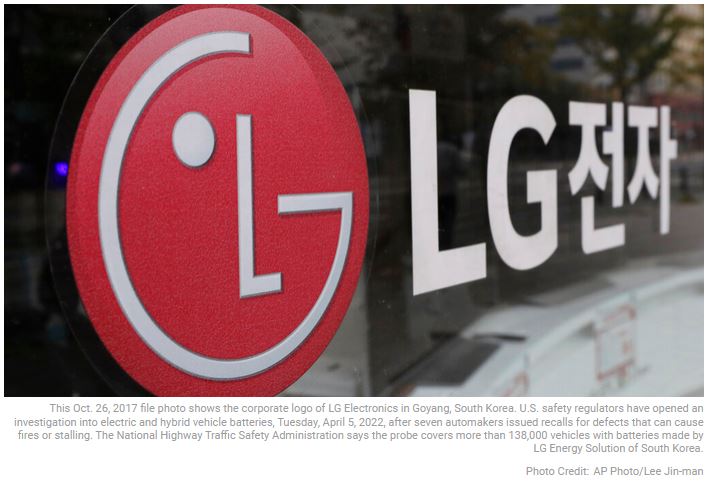Automobile recalls have been a common occurrence for many years. While most are minor or more of a precaution, they are an important safety practice for consumers. With the growing interest and focus on electric vehicles, there has been an increase in recalls and probes into electric vehicle batteries.
A new inquiry by the National Highway Traffic Safety Administration (NHTSA) covers more than 138,000 vehicles with electric batteries made by LG Energy Solution in South Korea. The inquiry is due to a number of recalls issued by Mercedes-Benz, Hyundai, Stellantis and Volkswagen for internal battery failures that may increase the risk of fires.
As with many new technologies, when the demand increases, the visibility to potential problems can increase as well. It started in early 2020 with Mercedes recalling a 2019 Smart Fortwo electric vehicle due to a defective high-voltage battery made by LG that could ignite the battery cells and potentially causing a fire. After Mercedes recall, it snowballed across other automobile makers requiring the NHTSA to begin their probe.
With all the trials and testing that occur with new technology, there is still the potential for product failures when they are used as intended but outside of a controlled environment. The hope is that these failures are minor and don’t compromise consumer safety. The result is highly regulated processes from materials sourcing and manufacturing to labeling and tracking.
In cases of product recalls, whether it is a medical device or an automobile, traceability plays a vital role in identifying not only where the product is made, but also when it was made and where it is now. Enterprise labeling and labeling compliance play an integral role in supply chain management and consumer protection.
